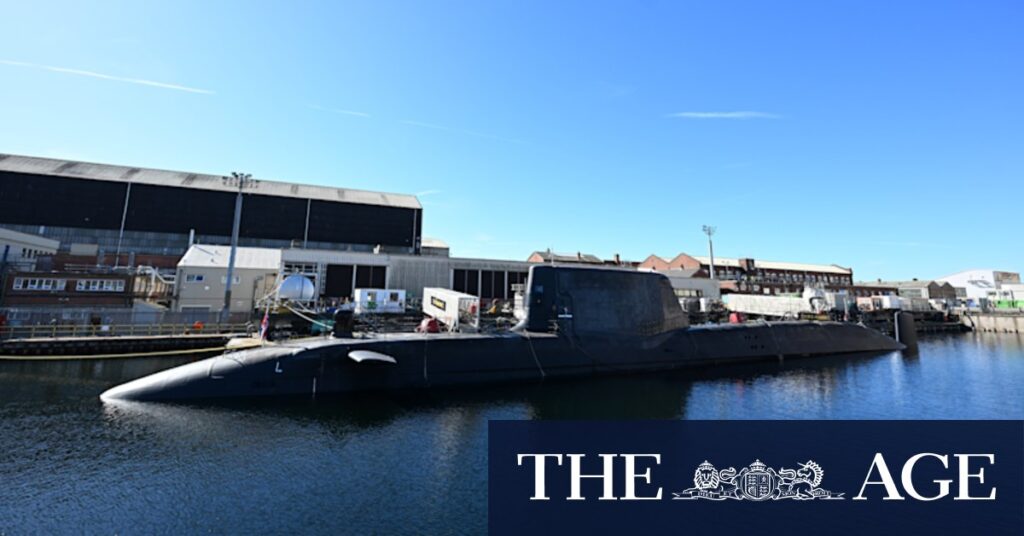
Australia is being presented with new opportunities to train thousands of workers for its AUKUS submarine fleet as major nuclear companies warn of a “dramatic challenge” in sourcing young trainees to build and maintain these vessels. This comes as British employers rush to address their own labor shortages to fulfill their commitments under the submarine pact, with estimates indicating the need for an additional 40,000 workers with nuclear skills by 2030.
Concerns about workforce readiness arise as members of a top UK parliamentary inquiry prepare to visit Australia. The inquiry, led by Labour MP Tanmanjeet Singh Dhesi, aims to monitor progress on AUKUS, including the joint ventures established to construct the future fleet in both countries to a common design. The delegation is expected to arrive in Australia on Friday as part of an inquiry that began in April, which has already gathered testimony on the program’s vast challenges.
Training Initiatives and Workforce Development
Babcock International, a key supplier of nuclear engineering to the British defense program, has initiated discussions with Australian submarine company ASC to facilitate training in the UK for Australian trainees. Harry Holt, Babcock’s nuclear operations chief executive, stated, “We have made a formal offer to ASC for them to send people over here to get training.”
During a public hearing of the House of Commons Defence Committee, Holt emphasized the potential for Australia to learn from the UK’s experience in establishing a Nuclear Skills Taskforce. This taskforce, a collaboration between business and government, successfully encouraged more apprentices into the sector through national recruiting campaigns and regional hubs.
“That’s been very successful here in the UK,” Holt noted. “We’re sharing that learning with Australia so they can build their own equivalent.”
Holt’s testimony was supported by insights from Rolls-Royce Submarines president Steve Carlier and BAE Systems Submarines managing director Steve Timms. Carlier acknowledged the workforce challenge in Australia, stating, “I think there are some questions to be answered on that over time. It’s a pretty dramatic challenge.”
Strategic Partnerships and International Support
The AUKUS pact received a significant boost this week when US President Donald Trump endorsed the plan during a meeting with Prime Minister Anthony Albanese. However, uncertainties persist regarding the practical details of the ambitious program. Australia plans to acquire three Virginia-class submarines from the United States in the 2030s, contingent on the availability of vessels for sale to allies. Additionally, Australia aims to construct five newer vessels, known as the SSN-AUKUS, with BAE in Australia, while Britain has contracted BAE to produce 12 submarines in the UK to the same design.
Australia is expected to have a sufficient number of engineering workers by 2027 to maintain a visiting Virginia-class submarine from the US. By 2033, it should have the capacity to maintain its own Virginia-class submarines. Timms expressed confidence in BAE’s ability to deliver the new vessels on schedule, highlighting the need to complete one new vessel every 18 months in Britain—half the time it has taken in the past.
“I think we’re doing well on the schedule,” Timms said. “We’ve prioritised getting the design right, and it’s important that we take the time to do that.”
Challenges and Future Prospects
Despite the optimism, critics of the program question the feasibility of the submarines’ delivery, citing potential changes in US policy and the absence of a finalized design for the SSN-AUKUS. Australian Submarine Agency director-general Vice Admiral Jonathan Mead expressed confidence in the new shipyard being constructed at Osborne in South Australia, describing it as potentially the most advanced in the world.
Deputy Prime Minister and Defence Minister Richard Marles, visiting the Osborne site with Mead, emphasized the complexity of nuclear-powered submarines. “Nuclear-powered submarines are the single most complex machine that humanity has ever built,” he said. “We’re not only building that, but we are standing up a production facility to build that.”
As the AUKUS pact progresses, the focus remains on overcoming the workforce challenge and ensuring that Australia can meet its commitments. The upcoming visit by the UK parliamentary inquiry will provide further insights into the program’s development and the collaborative efforts required to achieve its ambitious goals.







